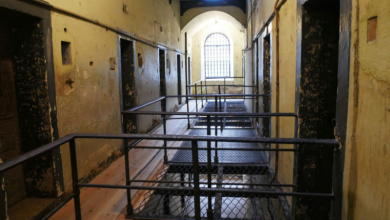The death of Khader Adnan sheds light on Israel’s apartheid against Palestinians
By Veronica Baggi

On the 2nd of May, Khader Adnan died in the Israeli prison of Ramle, after spending 87 days on hunger strike in protest against the systematic arbitrary detention of Palestinians by the Israeli authorities.
Background of the events
Adnan had been arrested on the 5th of February and indicted by an Israeli military court on charges of “inciting violence”, largely based on his visits to the families of Palestinian prisoners and the funerals of those killed by Palestinian forces. Adnan began a hunger strike in protest of his arbitrary detention. This was not the first time he had undertaken a hunger strike; in 2004 he went for 25 days, in 2012 for 67 days, in 2015 for 54 days, and in 2021 for 25 days.
Adnan became the first Palestinian political prisoner to die from a hunger strike, while detained by the Israeli Government since 1992. Six other prisoners, Palestinian sources added, had died in similar circumstances in 1970, the early 1980s and 1992.
To justify Adnan’s detention, the Israeli authorities insist that he belongs to the Palestinian Islamic Jihad (PIJ), which has over the years carried out assaults against Israeli citizens, but Adnan has never been charged with any role in violent crime.
Lack of medical assistance
The Israeli Government stated that Adnan had declined medical care, but a doctor who had visited him while he was on a hunger strike alleged that authorities had prevented him from receiving the independent professional medical care and surveillance he required. Adnan’s health had deteriorated rapidly in recent weeks. His family warned that he was dying and that he was at risk of a heart attack due to the past hunger strikes that had brought him to the brink of death several times. The Israeli authorities reportedly refused to transfer him to the hospital in April, after he had deteriorated, although he was in immediate need of medical treatment.
Administrative detention
Adnan’s administrative detention order had been summarily extended twice by the military court in Salem, and he had been rejected for bail on the 23rd of April. The military court’s appellate judge delayed deciding until May 1st for an additional 10 days.
Adan was held in administrative detention for a total of six years, which means confinement without charge or trial for reoccurring lengths of time. The evidence used by the Israeli army to detain Palestinians in this manner is kept secret and is almost always accepted by the military tribunals operating in the occupied West Bank.
Israel’s systematic and discriminatory use of administrative detention against Palestinians as part of its system of domination and oppression constitutes the apartheid crime against humanity. According to the Rome Statute of the International Criminal Court, detention in violation of fundamental norms of international law also constitutes a crime against humanity if committed in the context of a widespread or systematic attack against a civilian population.
Secret data has revealed that Israel presently has incarcerated 4,900 Palestinians, including 1,016 administrative detainees who are kept without accusation or trial for an undetermined period. Despite several warnings from international human rights organisations and demands to Israel to stop the practice immediately, the number of administrative detainees in Israeli detention facilities is at its highest level since 2008. Many Palestinian detainees have recently turned to hunger strikes as a form of protest against Israel’s harsh interrogation techniques.
ACHRS stance
ACHRS strongly condemns the continued and systematic use of force by the Israeli Government against the Palestinian population.
The Center calls on the international community, especially the allied states, to immediately stop economic and military support to the Israeli Government and to impose sanctions that can end the apartheid regime.
ACHRS, therefore, joins the United Nations Human Rights Office of the High Commissioner to demand accountability for the death of Khader Adnan and the mass arbitrary detention of Palestinians.





